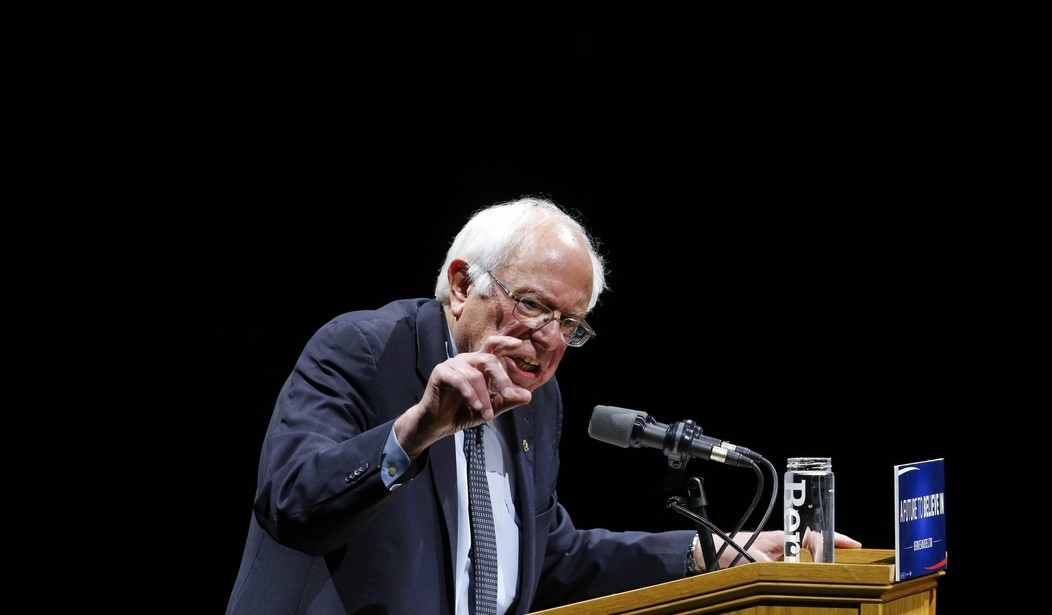Wisconsin, as I indicated while previewing the state’s GOP primary, is a deeply divided state. The birthplace of the Republican Party in 1854, it was a hotbed of the abolitionist movement, but also helped spawn the Progressive movement which arose after the Civil War — in part from abolitionist roots.
It is worth remembering that the Progressive movement was spawned within the Republican Party, and that such stalwart Progressives as Wisconsin Senator “Fightin’ Bob” La Follette were lifelong Republicans. That Douglas La Follette, currently Wisconsin’s secretary of State (not a direct descendant, but a member of a of the family), is a Democrat is largely the story of the migration of the Progressive movement from the Republicans to the Democrats under Woodrow Wilson, and its cementing in place there under FDR.
All statewide elections in Wisconsin are close, since roughly 45% of the population skews heavily Democratic and about the same percentage skews Republican.
The major hotbeds of Democratic support can be found in the state’s main population centers and college towns — Milwaukee, Madison, Racine, Kenosha, Eau Claire, and La Crosse — and on the Indian reservations (Wisconsin’s most heavily Democratic county as a percentage of votes, though sparsely populated, is Menominee County: almost entirely an Indian reservation). The next two are Dane County — site of the state capitol, Madison — and Milwaukee County.
The last Republican mayor of the city Milwaukee left office in 1908, which will give you a good idea of how deeply blue the city is. But the story of Milwaukee since then provides a clue to understanding Democratic politics in our state, as three of the city’s subsequent mayors were elected not as Democrats but as Socialists (including the still warmly remembered Frank P. Zeidler, who left office in 1960).
As in 2008, the conventional wisdom here was that Hillary Clinton was headed for coronation as the Democratic candidate. That is certainly not true now. Aided by Clinton’s inability to connect with ordinary voters, as well as by the Benghazi and email security scandals which have dogged her, Sanders has defied all previous expectations by racking up wins in 14 states thus far. Not all of them came from the northeast, where he was expected to dominate.
After an actual tie in Iowa (you have to believe that Clinton legitimately won every coin-toss in Iowa precincts to believe that she “won”), Sanders has gone on to win in New Hampshire, Colorado, Minnesota, Oklahoma, Vermont, Kansas, Nebraska, Maine, Michigan, Idaho, Utah, Alaska, Washington, and Hawaii.
This means, incidentally, that he has won the last five Democratic primaries in a row. He seems set to repeat that performance in Wisconsin: three of the last four polls published on RealClearPolitics show Sanders beating Clinton by 4-6 percentage points.
There is simply no evidence of enthusiasm for Clinton anywhere in the state. Her events have been sparsely attended; Sanders draws crowds. In my Milwaukee County suburb — fondly known to locals as the “People’s Republic of Shorewood,” or “Moscow by the Lake,” Bernie signs have been mushrooming since January.
I have yet to see a Clinton sign.
There are 86 Democratic delegates up for grabs in Wisconsin. Under the Democratic system, delegates are awarded on a more-or-less proportional basis (with the proviso that in order to win any delegates, a candidate must secure at least 15% of the vote). However, in addition to the delegates elected in the 50 states and U.S. dependencies, the Democrats have a system of “super delegates” representing the party elite and elected officials, who are not tied to the results of caucuses or primaries.
It has been little remarked in the press, largely focused on the drama taking place in the GOP, but the Democratic Party is under siege by an insurgency as well. The insurgent is Bernie Sanders, who is not a member of the Democratic Party and has always run for office as an independent socialist (though he caucuses with the Democrats in the Senate).
To gauge the strength of that insurgency, just look at the delegate count so far: Sanders has 1,011 delegates to Clinton’s 1,712 (2,383 are needed to clinch the nomination). But of those, Clinton has only 1,243 pledged delegates to Sanders’ 980.
The rest of the difference is in super delegates, who could easily switch their allegiance before the July convention.
The trend, as we have seen, is in Sanders’ favor. I expect Sanders to win the Wisconsin primary handily (Clinton has already given up on the state, though her husband spoke Friday at Lawrence College in Appleton, drawing only a few hundred) and take the lion’s share of delegates. Democratic Wisconsin is feeling the Bern.








Join the conversation as a VIP Member